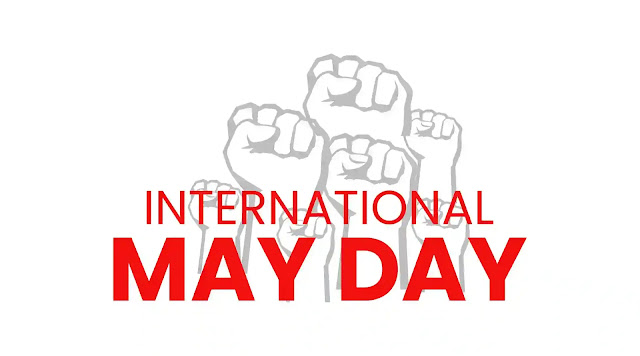May Day What? Why? How? and Bangladesh
May Day What? Why? How? and Bangladesh
 |
| Image: collected |
May Day, or International Workers' Day, has a rich and fascinating history that dates back to the late 19th century when workers across the world began organizing to demand better working conditions, shorter workdays, and higher wages.
One of the most significant
events that led to the establishment of May Day was the Haymarket affair of
1886 in Chicago, Illinois, in the United States. On May 1st, thousands of
workers went on strike to demand an eight-hour workday. The protest quickly
turned violent, resulting in several deaths and injuries.
Following this tragic event,
labor organizations worldwide declared May 1st as International Workers' Day to
commemorate the lives lost and to continue the fight for workers' rights. The
first International Workers' Day was celebrated on May 1st, 1890, with millions
of workers from over a dozen countries participating in rallies and marches.
The origins of May Day, however,
can be traced back even further to ancient pagan celebrations of spring. In
Europe, the first day of May was a time to celebrate the return of spring and
the renewal of life after the long, dark winter months. The Maypole dance,
which is still a popular tradition in many countries today, is believed to have
originated from these pagan celebrations.
In the early 20th century, May
Day became an important day for socialist and communist movements around the
world. These movements saw May Day as an opportunity to promote their political
agendas and to demonstrate their support for workers' rights and social
justice.
During the Cold War era, May Day became even more significant as a symbol of the ideological divide between the capitalist West and the communist East. In the Soviet Union and other communist countries, May Day was celebrated as a national holiday, with large parades and rallies showcasing the achievements of socialism and communism.
Today, May Day is celebrated in
many different ways around the world. In some countries, it is a national
holiday, while in others, it is a day for workers to come together and demand
better working conditions and greater protections for their rights. May Day is
a time to honor the history of the labor movement and to renew our commitment
to fighting for social justice and equality.
May Day has a long and complex
history that reflects the struggles and achievements of workers around the
world. From the Haymarket affair of 1886 to the communist celebrations of the
mid-20th century, May Day has played a crucial role in the labor movement and
in the fight for workers' rights. As we celebrate May Day today, let us
remember the sacrifices of those who came before us and renew our commitment to
building a more just and equitable world for all.





No comments